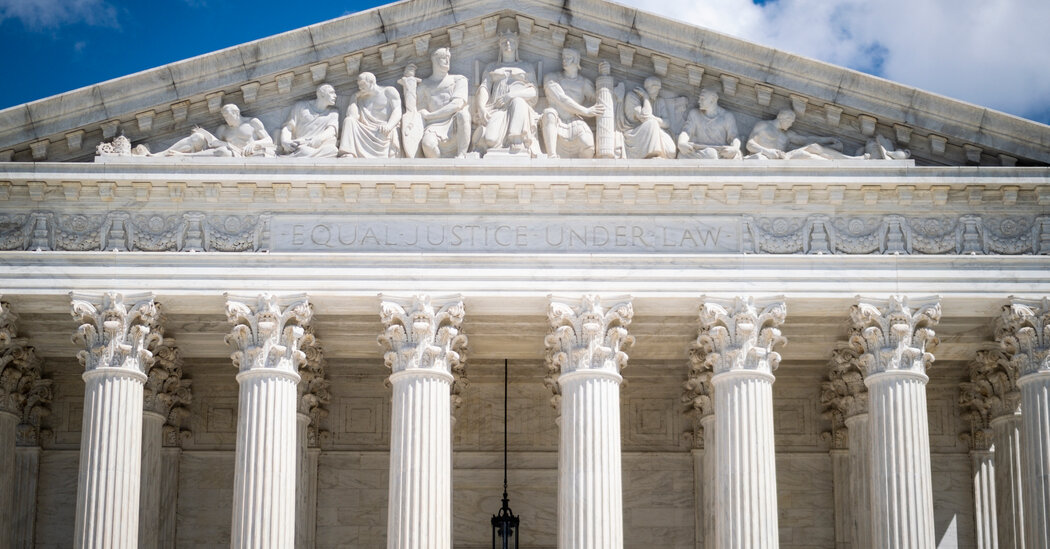
WASHINGTON — The Supreme Court on Monday turned away an appeal from a death row inmate in Texas who said his jury had been tainted by racial bias. The inmate, Kristopher Love, a Black man, had objected to the seating of a juror who had said he believed “nonwhite races” to be the “more violent races.”
The court’s three liberal members dissented, saying the Supreme Court should have instructed the Texas Court of Criminal Appeals, the state’s highest court for criminal matters, to reconsider Mr. Love’s challenge.
“When racial bias infects a jury in a capital case, it deprives a defendant of his right to an impartial tribunal in a life-or-death context,” Justice Sonia Sotomayor wrote, joined by Justices Stephen G. Breyer and Elena Kagan.
The majority, following the court’s standard practice, gave no reasons for refusing to hear Mr. Love’s appeal.
Mr. Love was convicted of committing a murder for hire. As part of jury selection in his case, prospective jurors filled out a questionnaire that asked, among other things, “Do you believe that some races and/or ethnic groups tend to be more violent than others?”
The prospective juror in question, who is white, said yes. He added an explanation: “Statistics show more violent crimes are committed by certain races. I believe in statistics.”
He elaborated when he was questioned by the lawyers in the case, saying he based his views on “news reports and criminology classes” rather than his “personal feelings toward one race or another.” The prospective juror added that he did not “think because of somebody’s race they’re more likely to commit a crime than somebody of a different race” and that he would not feel differently about Mr. Love “because he’s an African American.”
Mr. Love’s lawyers asked the judge to strike the prospective juror for cause, but the judge declined. Mr. Love had exhausted his peremptory challenges, and the juror was seated.
The Texas Court of Criminal Appeals ruled that Mr. Love could not contest the judge’s decision to seat the juror because the judge had earlier granted Mr. Love two extra peremptory challenges. Mr. Love had used those challenges before the juror at issue was questioned.
Justice Sotomayor wrote that “a previously used peremptory strike does not eliminate the need to inquire into the juror’s bias.”
She said that the state appeals court should grapple with whether Mr. Love’s right to an impartial jury had been violated.
“Biases capable of destroying a jury’s impartiality can take many forms,” she wrote. “Whatever the nature of the bias, if a trial court seats a juror who harbors a disqualifying prejudice, the resulting judgment must be reversed.”
Justice Sotomayor added that the questioning of potential jurors played an important role in the effort “to cleanse our jury system of racial bias.”
“Safeguards like this, however, are futile if courts do not even consider claims of racial bias that litigants bring forward,” she wrote. “The task of reviewing the record to determine whether a juror was fair and impartial is challenging, but it must be undertaken, especially when a person’s life is on the line.”



